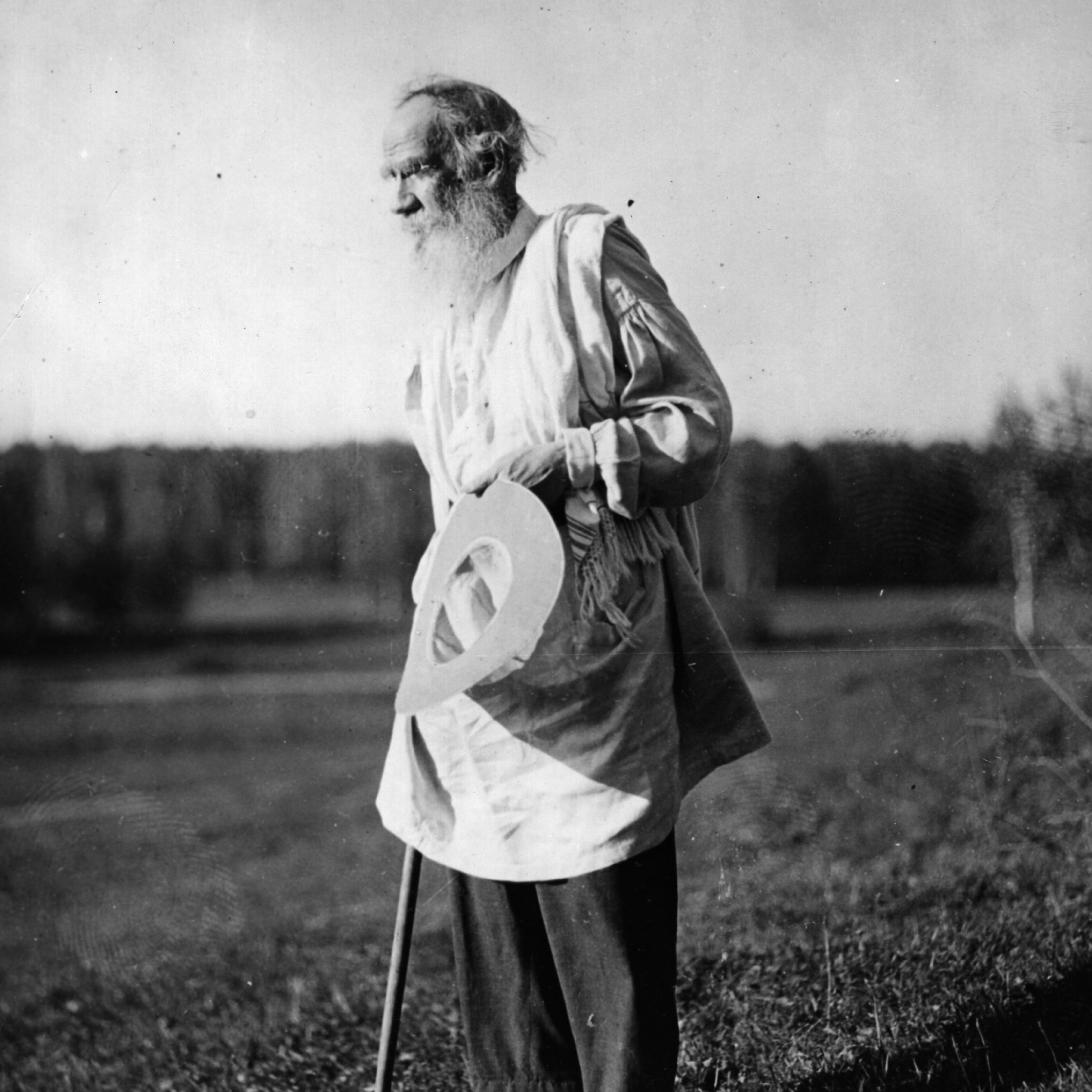Leo Tolstoy Archive
Written: 1908
Source: From RevoltLib.com
Transcription/Markup: Andy Carloff
Online Source: RevoltLib.com; 2021

‘From the moment when the first members of the Church Councils said: “We believe in the Holy Spirit”, that is to say, placed external authority above internal, and considered the pitiful deliberations of Councils to be more important and holier than that which is truly sacred to man: his reason and conscience – from that moment commenced the lie which lulls man’s body and soul, and which has murdered millions of human beings and continues its dreadful deeds to this day.’
‘In 1682 in England, Doctor Leighton, an honorable gentleman who wrote a book against the Episcopate, was condemned and sentenced to the following punishment. He was cruelly flogged, his ear was then sliced off, one half of his nose split and then the initials for Disseminator of Trouble were branded on his cheek with a hot iron. Seven days later he was flogged again, although the scars had not yet healed, the other side of his nose was split, the other ear sliced off, and the other half of his cheek branded. All this was done in the name of Christianity.’ (John Morrison Davidson)
‘Christ founded neither a Church, nor a State; he handed over no laws, nor government, nor any form of external authority; but he tried to write the law of God in the hearts of men in order that they might govern themselves.’ (Hubert Newton)
The peculiarity of the position of today’s Christian nations is that they have founded their life on a teaching which in its true meaning destroys that life; and this hitherto concealed meaning is beginning to come to light. The Christian nations built their house not on sand but on ice. And the ice has begun to melt, has already melted, and the house will collapse.
While the majority of people, deceived by the doctrines of the Church, had only a vague understanding of the true meaning of Christ’s teaching, and instead of worshiping their former idols worshiped Christ-God, His Mother, the Saints, bowed to relics and icons, believed in miracles, the sacraments, the Redemption and the infallibility of the Church hierarchy, the pagan structure of the world could be maintained and could satisfy people. All men alike believed in the explanation of the meaning of life which the Church gave them, and in the guidance for conduct that followed from it, and this faith drew people together. This is how it was until people noticed what was hiding behind the Church faith which had been given to them as the truth. But the misfortune of the Church faith was the existence of the Scriptures, which even the Church recognized as sacred. Despite the efforts made by the Church to conceal from people the essence of the teaching revealed in the Gospels, neither the prohibition of their translation into languages more accessible to the people, nor the false interpretation of them, could extinguish the light filtering through the deceit of the Church and illuminating men’s souls as they grasped the enormous truth of the teaching with ever-increasing clarity.
With the spread of literacy and the printing press people began to discover the scriptures and to understand what was written in them, and could no longer, despite all the maneuvers of the Church, avoid seeing the contradiction staring them in the eye between the political structure supported by the Church and the Gospel teachings. The Gospels directly denied the authority of both Church and State.
And this contradiction became more and more evident until people ceased to believe in the Church religion, and continued, only out of habit, propriety, and partly fear of the authorities, to hold on to the external forms of the Church religion: Catholic, Orthodox and Protestant alike, while no longer recognizing the inner religious significance.
This is what has happened to the overwhelming majority of the working people. (I am not speaking of the small communities of people who have openly rejected the Church teaching and established their own one, more or less approximating to the true meaning of the Christian teaching, because their numbers are so insignificant in comparison with the vast masses of the people who are increasingly liberating themselves from any kind of religious consciousness.)
The same thing has happened with the non-laboring, educated people of the Christian world. Even more lucidly than the simple folk these people perceived the complete bankruptcy and the inner contradictions of the Church teaching and quite naturally rejected it. But at the same time they were unable to recognize the true teaching of Christ, since this teaching goes against the whole existing order, and more importantly against their exclusively privileged position in it.
Thus it is that in the Christian world of today some people – the vast majority – life, outwardly fulfilling the Church rites out of habit, formality, convenience, fear of the authorities, or other self-interested aims, but without believing in the teaching of the Church, for having already seen its inner contradiction they can no longer believe in it. Others, who constitute a continually increasing section of the population, no longer accept the existing religion and, under the influence of a teaching they call ‘science’, consider any religion to be a vestige of superstition; they are guided in life by nothing other than their personal instincts.
To people who embraced a religious teaching that was superior to their capacities (such as the Christian teaching was to the pagans who adopted it at a time when social life, in the form of a coercive political regime, was already deeply embedded in the current morality and customs), what happened, which at first seems contradictory, was inevitable. Namely, as a result of having accepted the most advanced religion of their times, they found themselves devoid of any religion, and their moral and spiritual state sank lower than that of those who professed much inferior, and very much cruder, religious beliefs.